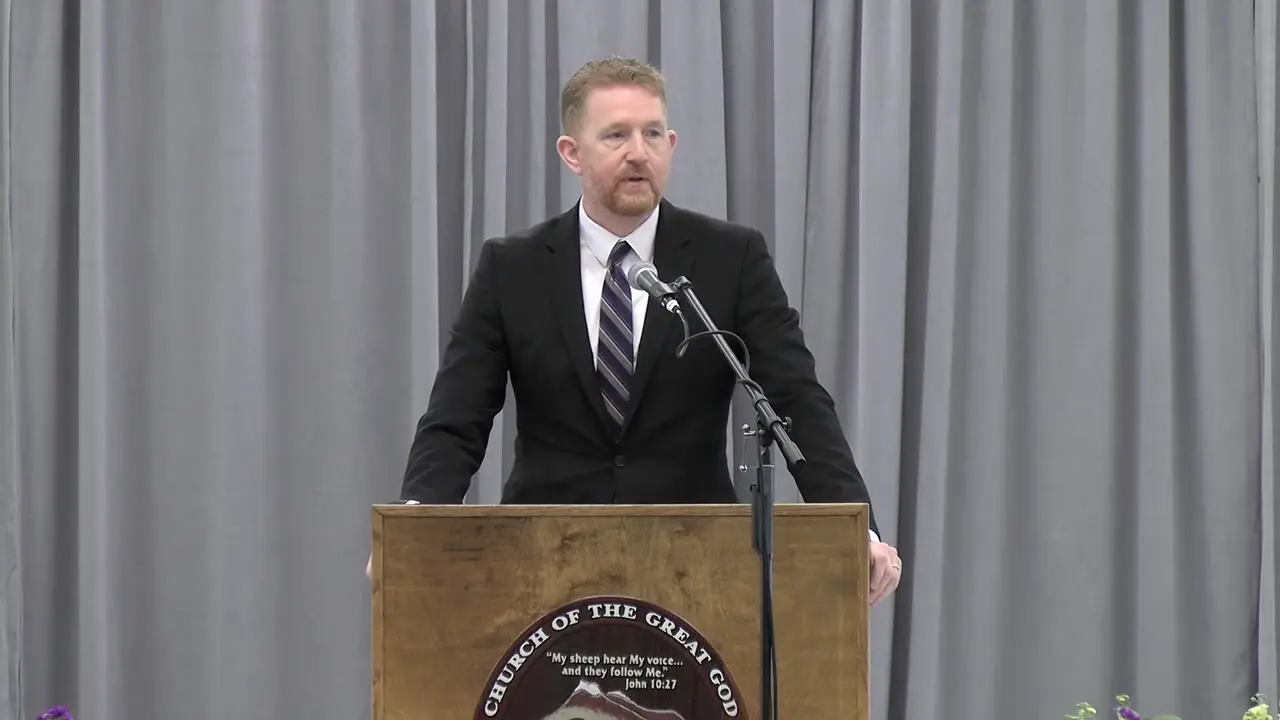Filter by Categories
What Makes for a Good Feast of Tabernacles?
Sermonette by David C. GrabbeGod commands us to dwell in temporary booths for seven days. As the green leaves change colors, celebrants cannot help but reflect on the brevity of life.

Strategies for Escaping Babylon (Part Four)
Feast of Tabernacles Sermon by David F. MaasWe must respond to our precious calling, choosing permanent eternal spiritual treasures, such as knowing God.
What We Can Learn from Booths
Feast of Tabernacles Sermon by Richard T. RitenbaughGod intends for us to learn daily lessons from living in booths during the Feast of Tabernacles, a joyous time after the harvest has been taken in.
The Quest for Permanence
Sermonette by David F. MaasFasting brings our heart into alignment with God. The very best offering we can present is a humble and contrite heart, put on the fast track through fasting.
Do You Recognize This Man? (Part Seven)
Sermon by Richard T. RitenbaughThe prevailing view is that at the end time, God will judge between the righteous and unrighteous, consigning each to heaven or hell, an idea from paganism.
Ecclesiastes and the Feast of Tabernacles (Part 1)
Sermon by John W. RitenbaughLove for this world will inevitably bring disillusionment. Because the world is passing away, our priorities should be to fear God and keep his commandments.

The Feasts of Tabernacles and Unleavened Bread
Feast of Tabernacles Sermon by David C. GrabbeIn this message, we learn the divine wisdom and unity within Almighty God's festivals (Leviticus 23) showing how each feast reveals His character, plan, and purpose for humankind. The speaker, using the method of comparison and contrast, exposes a chiastic structure or mirrored design connecting the spring and fall festivals, particularly Unleavened Bread and Tabernacles, both centering on deliverance, dwelling, and dependence on God, forming a complete picture of salvation through Christ. The pattern of one day followed by seven (Passover/Unleavened Bread) and seven days followed by one (Tabernacles/Last Great Day) symbolized the perfection and symmetry of His redemptive plan. Unleavened Bread focuses upon cleansing, sincerity, and feeding on Christ, the Bread of Life. Consequently, when we remove food from our dwellings, we purify every sphere of authority under God, thereby building a stable spiritual house upon Christ. Tabernacles, in contrast, emphasizes impermanence and humility, dwelling in temporary booths, reminding us of our dependence on God's daily provision in the wilderness. Together the permanence of houses and the transience of booths teach us that true security lies not in possessions or comfort but in Almighty God's sustaining presence. The physical symbols of food and dwelling illustrate some divine paradoxes. During Unleavened Bread, food lacks leaven—self-sufficiency and sin—but during Tabernacles, housing lacks permanence—worldly security and control. Through abundance and lack, permanence and transience, God's people learn to dwell in His presence, feed on His Word, and trust His timing.
Parable of the Rich Fool
Bible Study by Martin G. CollinsEven if we have everything we could ever want or need, when we die, our goods will do nothing for us. Because of wealth, the fool believes he has no need of God.
Looking Back to the Future
Feast of Tabernacles Sermon by John W. RitenbaughThe dwelling in booths and the sacrifices were the context for rejoicing at the Feast of Tabernacles. The booths depict our current lives as pilgrims.
How to Combat Future Shock
Sermon by John W. RitenbaughAlvin Toffler described a phenomenon known as Future Shock, a stressful malady caused by an inability to adjust to rapid change and over-stimulation.
Simplifying Life (Part One)
Sermon by David F. MaasWe must cleanse not only our physical spaces, but our minds, schedules, and hearts—removing distractions, negative thoughts, and emotional burdens.
Ecclesiastes Resumed (Part Two)
Sermon by John W. Ritenbaugh (1932-2023)Until Christ returns, the world's problems will not be solved. Using godly wisdom helps us to deal with our circumstances, but it won't change the world.
Do You See God?
Sermon by John W. RitenbaughUnless we acknowledge God's sovereign authority in our lives, following through with the things we learn from scripture, we, like atheists, will not see God.
The Christian and the World (Part Six)
Sermon by John W. RitenbaughClear vision lights the way spiritually. If the eye of the heart is aimed at spiritual treasure and the glory of God, it will remain singly focused.
The Unshakable Kingdom!
Sermon by Martin G. CollinsBecause all things will be violently shaken, God commands His people to place their trust in the unshakeable Kingdom of God which will displace all empires.